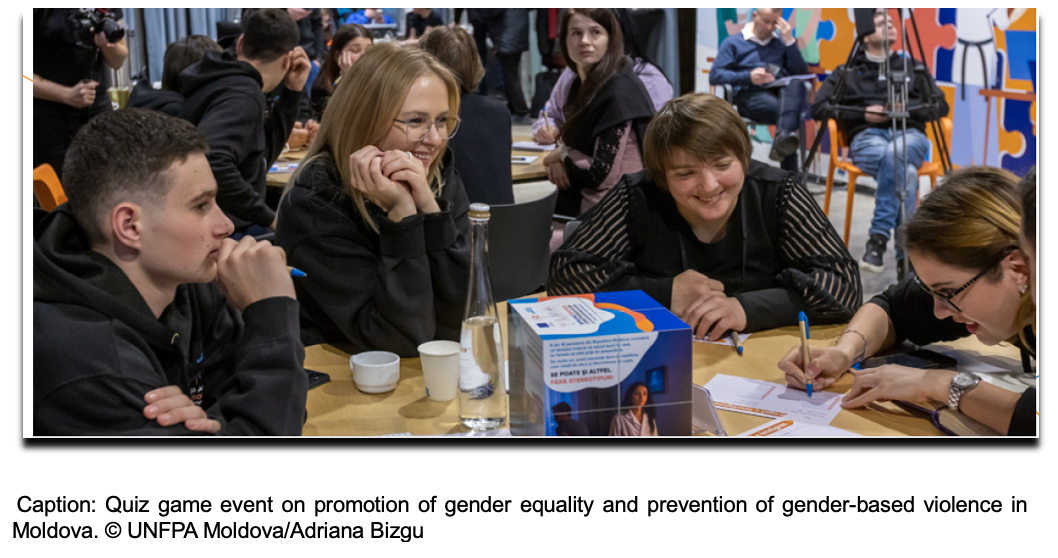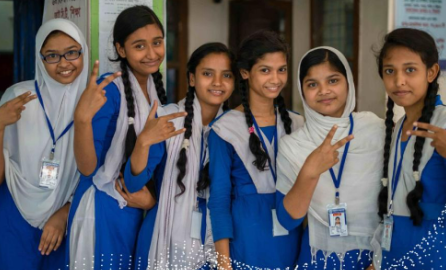Social Behaviour Change in Eastern Partnership countries

-
Gender marker: G2-Promotes gender equality as a primary objective
-
Period of implementation: 2020 - 2023
-
Amount: EUR 7,500,000
-
Geographical area: Eastern Partnership
-
Implementing partners:
-
GAP III’s Areas:
-
Gender-Based Violence
-
Economic and social empowerment
-
Equal participation and leadership
-
Many, if not most, gender inequalities are rooted in perceptions, stereotypes, and other learned behaviours. That's why, to help tackle gender-related issues in the Eastern Partnership region, the three-year EU 4 Gender Equality Programme aims to strengthen equal rights and opportunities for women and men by shifting discriminatory social norms around gender roles, tackling gender stereotypes, and increasing men’s participation in childcare and other domestic responsibilities.
The programme is funded by the European Union and implemented jointly by UN Women and UNFPA in six Eastern Partnership countries: Armenia, Azerbaijan, Belarus, Georgia, Moldova, and Ukraine. Overall, it provides a unique opportunity to change the regional social discourse, perceptions, and harmful practices on gender equality, and to empower women and girls to fully exercise their rights and develop their potential.
With these behavioural goals in mind, the project includes a series of intervention strategies designed to promote social change and address underlying structural gender barriers and social norms. This is done with a particular emphasis on shifting discriminatory gender stereotypes, increasing men’s involvement in parenting, and reducing the number of victims of violence through targeted prevention interventions with perpetrators. It is complemented by the support from a gender helpdesk to increase the knowledge base.
During the three years of implementation, the project reached the following target groups:
-
3,846 men benefited from around 49 ‘Fathers’ Schools’ that promote active and engaged fatherhood and equal sharing of childcare and household chores.
-
Around 41.5 million people heard persuasive messages on promoting gender equality and eliminating harmful gender stereotypes through social media campaigns.
-
22 CSOs implemented small grant projects to develop innovative solutions for shifting harmful gender norms and societal perceptions of women's and men's roles.
-
1,014 health professionals and family centre specialists learned about the importance of engaging men during pregnancy and childbirth and about the importance of promoting active fatherhood.
Change is always possible, even though not easy to achieve. This project has shown significant results in targeting discrimination, gender-based violence, and other similar issues by hitting the root of the problem and tackling the underlying structural gender barriers and social norms. It's all aimed at creating a happier, healthier society.
“We are very strong and if we know and protect our rights, we can achieve anything.” Leyla Farajova, young woman activist
